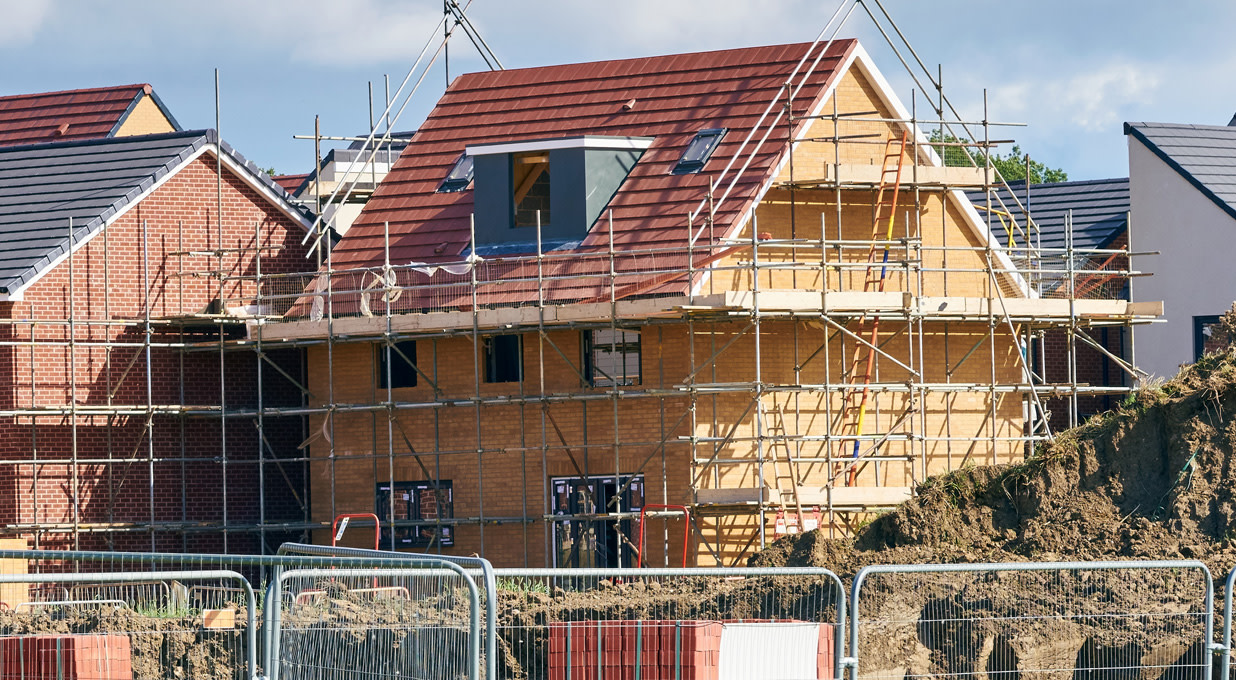Barratt Developments’ full-year revenue fell 21.7% to £4.2bn as new home completions fell from 17,206 to 14,004.
Underlying pre-tax profit more than halved to £385mn. This reflected higher build cost inflation as well as lower completion volumes and average selling prices.
Free cash flow fell from £0.4bn to £0.1bn. At year-end, net cash stood at £0.9bn, down from £1.1bn.
Barratt’s order book fell from £2.4bn to £2.2bn. Barratt plans to deliver between 13,000 and 13,500 new homes this year, against a “challenging” market backdrop.
The Redrow acquisition was completed in August and is expected to gain final approval from the regulator in mid-October.
A final dividend of 11.8p per share has been announced. This takes the full-year total to 16.2p, down from 33.7p in the prior year.
The shares fell 1.3% following the announcement.
Our view
Barratt's full-year numbers were a painful read for investors, and the housebuilder is still struggling to gain momentum
On the positive side, underlying pre-tax profits didn’t fall as much as the market expected. Reservation rates and buyer sentiment appear to be improving too, but further easing of mortgage rates will be needed if activity is to pick up significantly.
With a new government in power, there has been a fresh dose of hope that the issues plaguing the housebuilding industry can be fixed. Reform of the current planning rules is key to an uplift in activity, and Barratt appears optimistic that it’s on the way.
This optimism comes with warnings. Fewer homes being sold and at reduced prices have meant less cash coming in the door. Elevated levels of incentives, used to boost sales, have also weighed on profitability. This means shareholder returns have taken a back seat as the group manages its investments and cash flows carefully.
The outlook for the new financial year was also a little disappointing, with even fewer homes set to be built. That reflects the current economic uncertainty and tough borrowing conditions. People are simply less likely to wander into a show home and even less inclined to sign on the dotted line than they were a year or two ago.
The Redrow acquisition was completed in August and once some minor issues around competition are ironed out, the deal should get the final green light from the regulator by mid-October.
The Redrow brand focuses on larger, higher-quality homes for more affluent buyers. The combination of these two companies will create a major force in the sector. If operations can be streamlined and new homes delivered as expected, there’s plenty of opportunity for profits to rebound over the medium term. But as with any merger, there will be challenges.
On the balance sheet side, structuring the deal as a share offer means that it shouldn’t eat into Barratt’s sizable net cash position which was £0.9bn at the last count. That gives flexibility to cope with a challenging market in the near term.
We see merit in the Redrow deal, the combined entity will have a strong landbank to unleash when the market recovers. It’ll likely be a year or so before major benefits start to feed through to profits and there are no guarantees. In the meantime, Barratt's valuation remains depressed, a reflection of the tricky market conditions.
Environmental, social and governance (ESG) risk
Most housebuilders are relatively low risk in terms of ESG, particularly for those in Europe. However, there are some environmental risks to consider, from direct emissions to the impact of their buildings on the local ecology. The quality and safety of their buildings is also a key risk.
According to Sustainalytics, Barratt Development’s management of ESG risk is strong.
Commitments are in place to deliver net zero houses by 2030 through a combination of energy-efficient equipment, the use of renewables and the establishment of alternative heating technologies. While Barratt reports that all its revenues come from sustainable products, the total portion of recycled materials used in its operations is undisclosed.
Barratt Developments key facts
All ratios are sourced from Refinitiv, based on previous day’s closing values. Please remember yields are variable and not a reliable indicator of future income. Keep in mind key figures shouldn’t be looked at on their own – it’s important to understand the big picture.
This article is not advice or a recommendation to buy, sell or hold any investment.No view is given on the present or future value or price of any investment, and investors should form their own view on any proposed investment.This article has not been prepared in accordance with legal requirements designed to promote the independence of investment research and is considered a marketing communication.Non - independent research is not subject to FCA rules prohibiting dealing ahead of research, however HL has put controls in place(including dealing restrictions, physical and information barriers) to manage potential conflicts of interest presented by such dealing.Please see our full non - independent research disclosure for more information.


